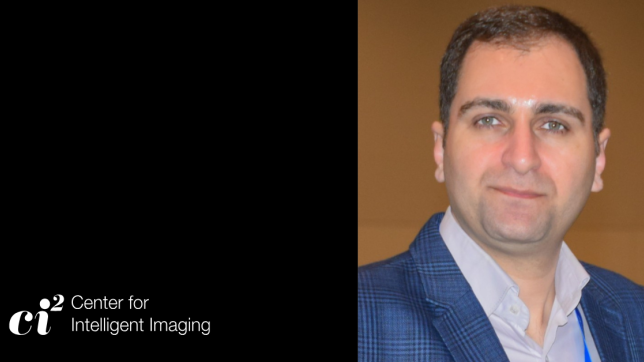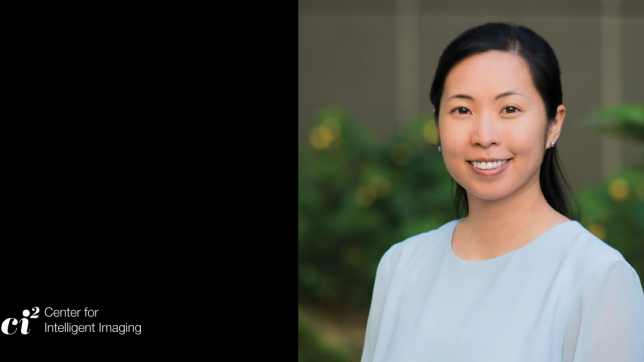Each October, the University of California, San Francisco's Center for Intelligent Imaging (ci2) recognizes Breast Cancer Awareness Month. This month, we highlight the research and clinical advancements in breast cancer and how artificial intelligence (AI) improves patient workup times.
Maggie Chung, MD, Assistant Professor in the Department of Radiology and Biomedical Imaging and ci2 member, researches the impact of early breast cancer diagnoses and the role of AI in improving breast cancer detection and treatment.
"This is a particularly exciting time for the application of artificial intelligence in breast imaging," Dr. Chung said. "Breast imaging benefits from exceptionally well-curated data including structured reporting and linkage to pathology outcomes. These features create an ideal foundation for robust AI training, validation and clinical translation."
Dr. Chung recently completed an expedited workup trial at Zuckerberg San Francisco General Hospital, a safety-net hospital. She and her team used the Mirai risk algorithm, a mammogram-based risk model developed by the University of California, Berkeley's Adam Yala, to prioritize high-risk women. The process works by inputting a mammogram into the AI algorithm, and a one-to-five-year risk for cancer is determined. There are many ways this tool can be implemented; Dr. Chung chose to focus her research on improving the current screening workflow, as it can require several visits for patients, forming a barrier to optimal patient care.
For a patient who ultimately gets diagnosed with cancer, from the time they get their screening mammogram to when they get the biopsy and diagnosis, that could take two or three months and require at least three visits. "The motivation behind the study was, what if we could use a risk algorithm and try to predict who are the women who are most likely to have breast cancer following this immediate mammogram," Dr. Chung said. Reading a mammogram before the patient leaves the building and assessing if the patient needs a diagnostic evaluation can save the patient and clinicians' time.
During the study's trial period, Dr. Chung and her team ran the Mirai algorithm on patient mammograms in real time, determining if the patient is at low or high risk of developing breast cancer. Patients in the top 10 percentile, considered high-risk, were immediately offered the results of their screening. "We were able to reduce the average time from screening mammogram to screening results by over 99% for these patients," Dr. Chung said. "Average time from screening mammogram to diagnostic evaluation also reduced by 99% for these patients who ultimately went on to get breast cancer, and ... we reduced their time from screening mammogram to biopsy by 87%." Dr. Chung's implementation of AI in breast cancer and imaging care has brought a significant impact to the patients who are ultimately diagnosed with breast cancer, and for those who don't have breast cancer but went through the expedited workup. Scientific literature suggests that waiting extended periods of time for test results can lead to stress and anxiety for patients, so the deployment of the Mirai algorithm can help reduce that for patients.
“Over the next five to ten years, I anticipate that artificial intelligence will play an increasingly central role in transforming breast cancer care,” Dr. Chung said. “AI offers tremendous potential to enable more personalized screening and targeted interventions by helping us identify women who would benefit most from additional imaging or preventive measures. By aligning the right imaging modality with the right patient at the right time, we can maximize early cancer detection and improve outcomes.”
On Breast Cancer Awareness Month and the role that AI is playing in improving patient outcomes, Dr. Chung said: "There are a lot of really promising results coming from the AI space in terms of breast imaging. AI is helping radiology to improve breast cancer detection. And also, there are tools that can help identify women who might need additional screening options earlier. And I think it's a really great aid that can complement radiologist skills. And help bring the right intervention to the right patients at the right time, and to help breast cancer detection."



